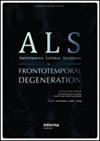Review of Poor Queer Studies: Confronting Elitism in the University by Matthew Brim (Duke University Press)
引用次数: 0
Abstract
The review focuses on the practical work of Poor Queer Studies. Rather than retheorize queer studies from the class perspective of "rich" and "poor," Brim makes a case study of his work as a professor of queer studies at the College of Staten Island (CSI). Insisting on the particularity of his and his students’ relationship to queer studies, Brim makes an example of the work they do together in the classroom, and the ways they live their studies on public transit, at home with their families, and in their part-time jobs. This review questions the extent to which poor queer studies differs from the modern university’s reduction of all education to career-training. Brim’s praxis of poor queer studies is always undertaken with individual students in specific socio-economic circumstances—a particularity that makes it different than market-driven job-training. This review also raises questions about the general applicability of this case study. Would poor queer studies work elsewhere as it does at CSI? Berlant’s idea of exemplarity is helpful in answering this question. Unlike examples that confirm a norm, there are examples that change norms. Brim’s example of poor queer studies works to exemplarily change what counts as normal. Practically, this means no longer thinking of queer studies as operating without class distinction—and reclaiming part of the work of the discipline from seemingly classless rich queer studies at places like Yale and New York University.《贫困酷儿研究综述:直面大学精英主义》作者:马修·布里姆(杜克大学出版社)
这篇综述的重点是穷人酷儿研究的实际工作。Brim并没有从“富人”和“穷人”的阶级角度对酷儿研究进行重新理论化,而是对他作为史坦顿岛学院(CSI)酷儿研究教授的工作进行了案例研究。布里姆坚持认为他和他的学生与酷儿研究之间的关系是特殊的,他举例说明了他们在课堂上共同完成的工作,以及他们在公共交通上、与家人在家里、以及在兼职工作中完成学业的方式。这篇综述质疑了贫穷的酷儿研究在多大程度上不同于现代大学将所有教育减少到职业培训。Brim的穷酷儿研究实践总是针对特定社会经济环境下的个别学生进行的——这种特殊性使其与市场驱动的职业培训不同。这篇综述也提出了关于这个案例研究的普遍适用性的问题。糟糕的酷儿研究在其他地方也会像CSI一样有效吗?伯兰特的范例概念有助于回答这个问题。与确认规范的例子不同,有改变规范的例子。Brim关于可怜的酷儿研究的例子可以作为改变正常的范例。实际上,这意味着不再认为酷儿研究是没有阶级差别的,并从耶鲁大学和纽约大学等地看似没有阶级差别的丰富酷儿研究中收回该学科的部分工作。
本文章由计算机程序翻译,如有差异,请以英文原文为准。
求助全文
约1分钟内获得全文
求助全文

 求助内容:
求助内容: 应助结果提醒方式:
应助结果提醒方式:


